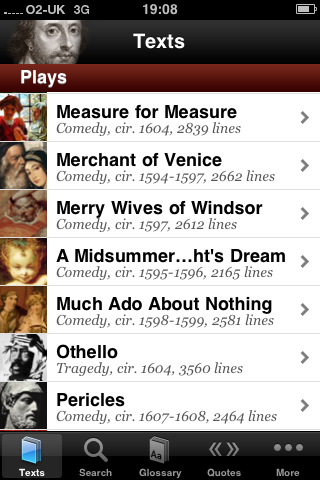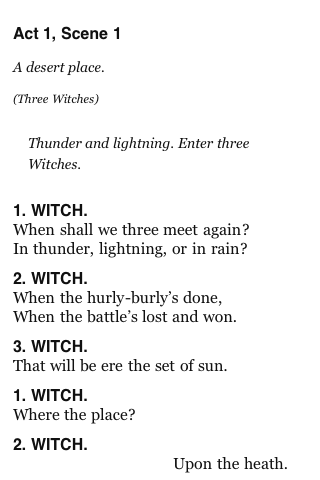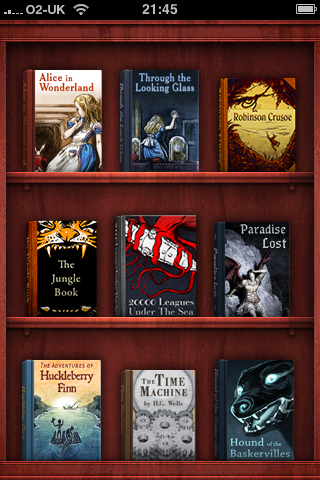
On this day ten years ago, I said “Books are indeed wonderful things, but still, the iPad is the future of reading…”
This was the key focus of a talk I gave on the 1st October 2010 at ULCC’s FOTE10 event at The Senate House, at the University of London.
This was the second time I had spoken at FOTE, having delivered a session the previous year on the future of learning.
There was a bit of a backlash against ebooks back in 2010, as people felt that they weren’t as good as “real” books. For me they weren’t a replacement for books, they enabled different ways of reading. For many ebooks and e-book readers enabled a new way to access books and content, that otherwise would mean they wouldn’t have access.
The purpose of my talk was to discuss the value and potential value of ebooks and to differentiate between the act of reading and the medium of reading.
In the first part of the presentation I focused on the book and the physicality of the book, as well as the reading experience. I also wrote about this back in 2010.
There is something very beautiful and sensual about a new book. Anyone who has ever bought a new book will know what I mean. Whether you open the parcel from Amazon, or remove the book from a bag of a high street bookseller, there is something about the smell of a new book, the feel of the roughness of the paper between your fingers as you slowly flick from page to page. As you open it for the first time you can feel the stiffness of the spine of a book that has never been read. The smoothness of the dust jacket, the rough texture of the cover, combine to produce a tingling feeling of excitement as you realise you are about to open the book and start to read.
There is even something about a used book, or one from a library. What is the history or legacy of the book? Who read it before you? Where did they read it? How did they feel when reading it? Did they share it with others? Even the annotations, that can be annoying, give a flavour of how previous readers of a book felt and used the book.
Books are extremely portable, they can be easily carried to any location and used. They fit into a multitude of bags and can be used whether you are a passenger in a car, on a train or flying in a plane. You can use books at home, in a coffee shop, on the beach, in a library, a classroom or in the park.
Books have an unique user interface that has never been adequately duplicated on any electronic device. You can flick from section to section, page to page. You can highlight and annotate. Put sticky notes on specific pages. Use a series of physical bookmarks to identify sections.
Books are also easily lent, libraries know this, but I am sure you like me have lent a book to others. You want them to share that feeling you get when reading a book for the first time, something you can’t get back when reading a book for a second time.
Now in 2020 I don’t think that much has changed in how people feel about physical books, if anything the importance of the physicality of books has increased for people. As I did predict, we didn’t see the end of physical books, we still have bookstores and people still buy physical books. If anything bookstores have recognised that buying books isn’t just about the books, it’s the whole experience of buying the book. Publishers now recognise that people appreciate the physicality of books and have spent time ensuring that books are now more than just the words, focusing on the covers and look of the book as much as the content.

In the second part of my talk I started talking about ebooks. These have been around since the early 1970s, so they aren’t new, I talked about access and the growth of ebooks.
In May 2011 Amazon.com announced that its ebook sales in the US now exceeded all of its printed book sales. However by 2016 we started to see a decline in ebook sales, with paperback book sales higher than e-book sales. Despite concerns about ebooks killing the books market, this didn’t happen. In the UK e-book share went up from 20% to 33% between 2012 and 2014, but down to 29% in the first quarter of 2015.
What was new ten years ago was the growth of the consumer market for ebooks, the Kindle and in 2010 was the exciting then new iPad. This was the focus of the third part of my talk, which looked at ebook readers. In 2010 there was a range of ebook readers available, most hardware suppliers had their own range of devices, as well as their own ebook stores. By early 2017, smartphones and tablets had both individually overtaken e-readers as methods for reading an e-book. Now in 2020 we have seen a dramatic decline in the variety of readers and stores, with Amazon dominating the consumer market. Though the use of ebooks in education though has become embedded into learning and teaching in 2020.
The fourth part of my talk was about then then new iPad. Since then we’ve had 22 more iPad models, but all of them have a built in app for reading, what was called iBooks and now Books.
For me the fifth part of my talk was probably the real reason saying the iPad is the future of reading and I also think something that hasn’t been realised even now in 2020.
I took the analogy of transport, that the first horseless carriages were literally carriages without horses, but the future of the carriage became cars, trucks, buses and other forms of wheeled transport.
So to bring it back to books, I talked about how after printing the bible the next biggest thing to be published by printers was plays. A printed play though isn’t in any way a replacement for watching a play. However what printing did allow was more different ways in presenting text and content, from newspapers, magazines as well as books.
In the next section I demonstrated some real ebooks that you could get on the iPad, including interactive books, books incorporating video and audio, as well as traditional ebooks.
So in 2010, ebooks were digital versions of real books, what I did think we could see in the future at that time, utilising the potential of devices such as the iPad, was to create new and exciting reading experiences. I don’t think now in 2020 that we’ve got that, so I do think I still stand by the iPad is the future of reading.

As a result of this presentation (and other things) I became a bit of an expert on ebooks. I presented on ebooks at many different events and conferences, as well as writing a chapter in a book on ebooks, and finally a book on Preparing for Effective Adoption and Use of Ebooks in Education in 2012.
Today ebooks are part and parcel of education with easier access to books by students from academic libraries. However we still don’t have that next generation of ebooks that could potentially transform learning and teaching.









